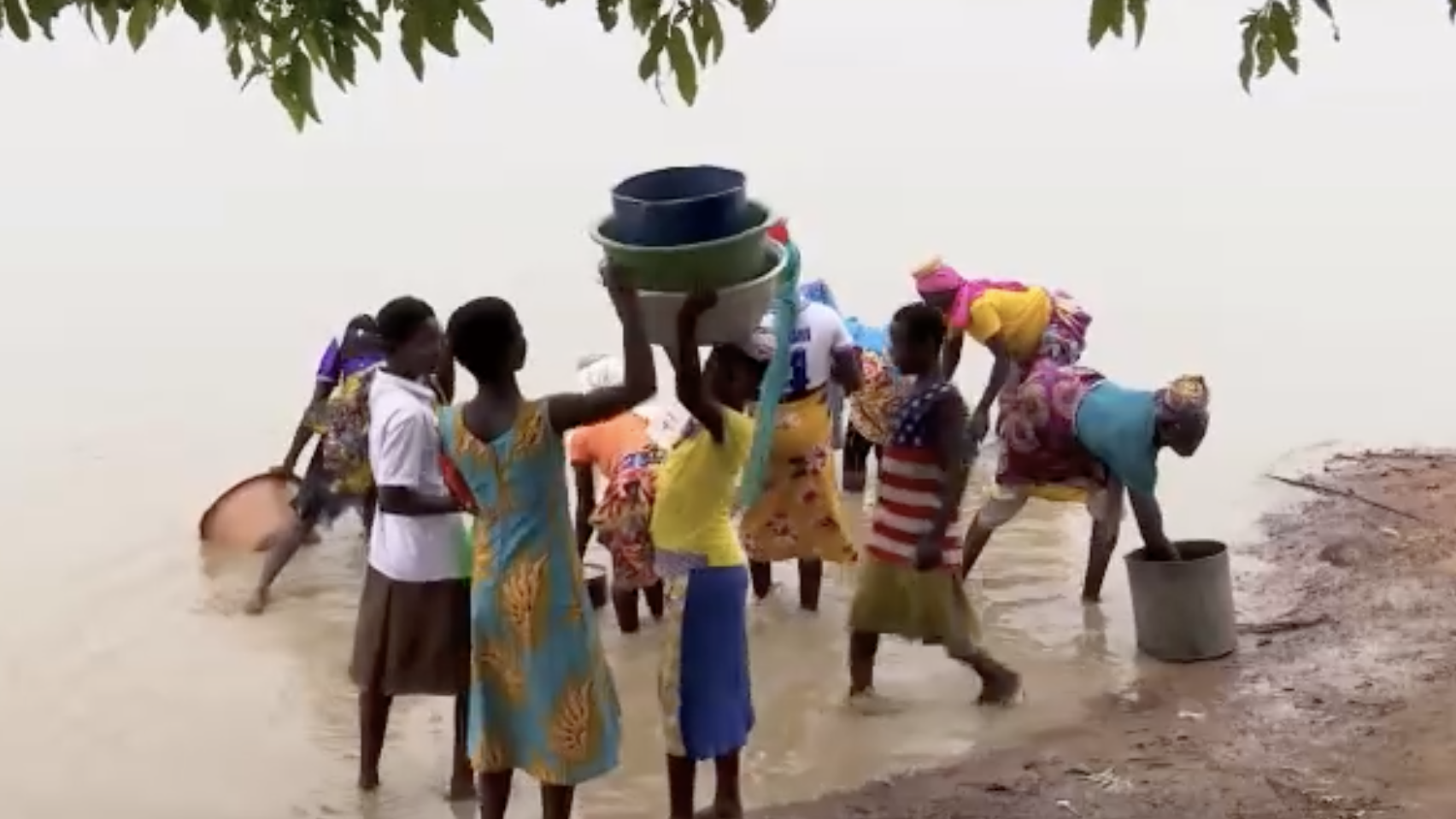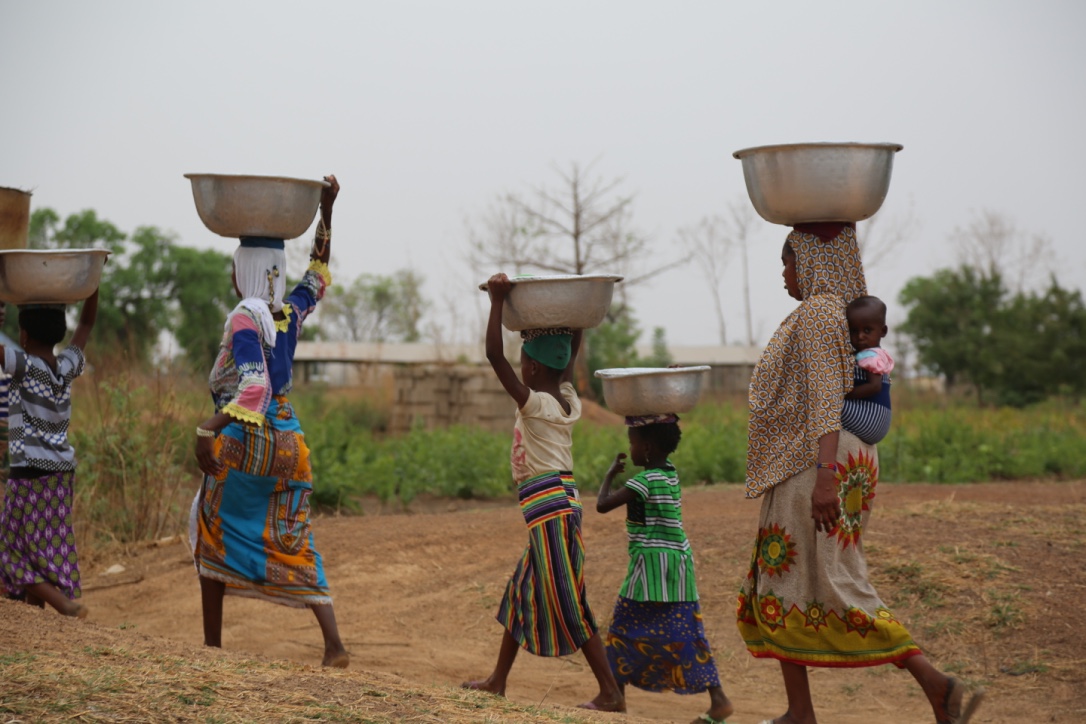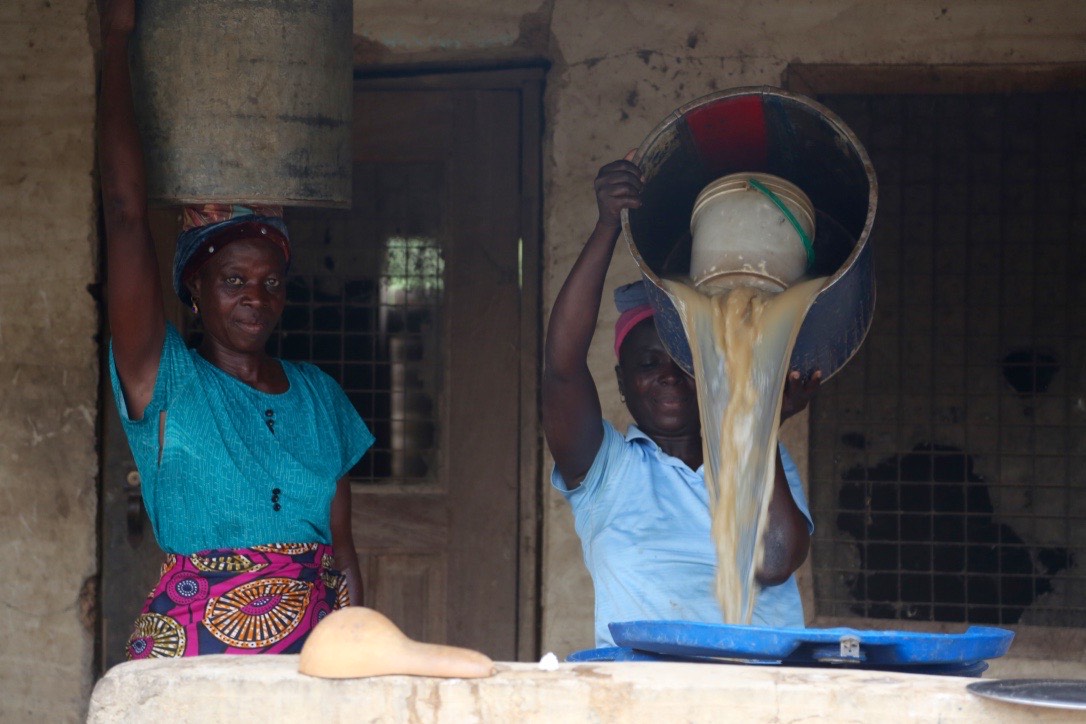02:59

The disparity in the distribution of clean water in Sub-Saharan Africa is threatening the livelihoods of many people. The United Nations says only 24 percent of the population in Sub-Saharan Africa has access to safe drinking water. And it's usually women who travel long distances to fetch water for household needs.
Salamatu Simon lives in Fooshegu in the Northern region of Ghana. She walks more than 2 kilometers every day to collect water from a dam that is polluted. She uses it for drinking and cooking.
"We have no alternative. This dam is the only source of water in this community and we even share it with cattle," said Salamatu.
But that's not even the worst of it. The long-distance travel to fetch water no only leaves her vulnerable to illness and disease, it also affects her livelihood.
"I'm not able to get enough water for my daily use because of the long distance from my house to the dam," she said. "When I make one trip, I get tired and sometimes find it difficult to go to the farm."

Women and children are seen carrying water on their heads for daily use in northern Ghana. /CGTN
Women and children are seen carrying water on their heads for daily use in northern Ghana. /CGTN
UNESCO estimates that women spend at least 16 million hours daily collecting water – compared to 6 million hours for men. This tends to widen the inequality gap. In some communities in the Northern region, women join long queues to get water from boreholes.
"I process rice and sell for a living so I always need water. But these days due to the scarcity of water, I'm not able to process the rice because I spend all day fetching water," said Samata Yussif.
The UN Sustainable Development Goal on clean water and sanitation aims to achieve universal and equitable access to safe and affordable drinking water for all by 2030. But this target appears unreachable in Ghana. More than 3 million people in the country rely on surface water and streams that are mostly polluted.

Women emptying their buckets before heading out to collect water. /CGTN
Women emptying their buckets before heading out to collect water. /CGTN
Ghana's government says it has constructed more than 400 dams across the country to improve access to water in rural areas. But activists say the project has not been sustainable. They are pushing for improved access to safe water, with a focus on how it affects the lives of women.
"We must find a way of impounding surface water to treat for them. And yet we say the cost is so high and we cannot exploit the water," water consultant Patrick Apoya said. "So if we can put a value on water, it is more than the money you are spending. It means everything to the community; to their culture, to their way of life, education and agriculture."
Salamatu Simon, like many women facing the water crisis in Ghana, agrees access to safe drinking water can be a game changer.
"If we get pipe water connected to our homes, life will be so much better. We can take better care of our children and at least we'll be free from water-borne diseases," she said.

Women waiting to get water from a borehole. /CGTN
Women waiting to get water from a borehole. /CGTN
(Cover: Women collecting water from a dam in northern Ghana. /CGTN)
(If you want to contribute and have specific expertise, please contact us at nature@cgtn.com.)

